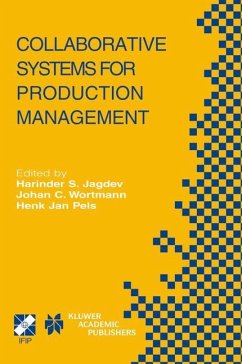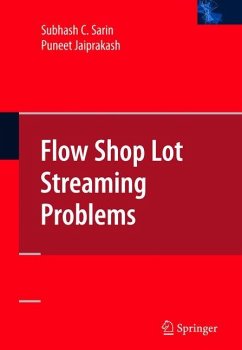
Global Production Management
IFIP WG5.7 International Conference on Advances in Production Management Systems September 6-10, 1999, Berlin, Germany
Herausgegeben: Mertins, Kai; Krause, Oliver; Schallock, Burkhard
Versandkostenfrei!
Versandfertig in 1-2 Wochen
154,99 €
inkl. MwSt.

PAYBACK Punkte
77 °P sammeln!
Globalization is one of the key issues for production management and therefore Global Production Management was selected as the theme for the 1999 International Conference on Advances in Production Management Systems. At the turn of the century Berlin is one of the most prominent examples for a world of new opportunities for transnational business. Therefore it was chosen to host the conference. Berlin is a link between East and West. Suppliers in Poland and the Czech Republic play a growing role for the car and rail industry in Europe. Fraunhofer IPK, the host of the conference and the editor...
Globalization is one of the key issues for production management and therefore Global Production Management was selected as the theme for the 1999 International Conference on Advances in Production Management Systems. At the turn of the century Berlin is one of the most prominent examples for a world of new opportunities for transnational business. Therefore it was chosen to host the conference. Berlin is a link between East and West. Suppliers in Poland and the Czech Republic play a growing role for the car and rail industry in Europe. Fraunhofer IPK, the host of the conference and the editors of this book experienced the profound differences in production philosophies and production management tools not only between Germany, West and Eastern Europe but also in East Asia, India, South and North America. Referring to global players, global production seems to be solved, but only at a superficial point of view. Global enterprises have installed own procedures and IT systems and force suppliers to interconnect to their global information handling. The scope and complexity of the topic of distributed supply by Virtual Enterprises or Extented Enterprises requires solutions that reach beyond new algorithms or standardized data transfer protocols. The book covers approaches and results for the design and management of business processes and IT solutions that enable companies to handle information in a global context as easy as they supply physical components.














